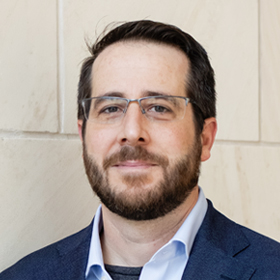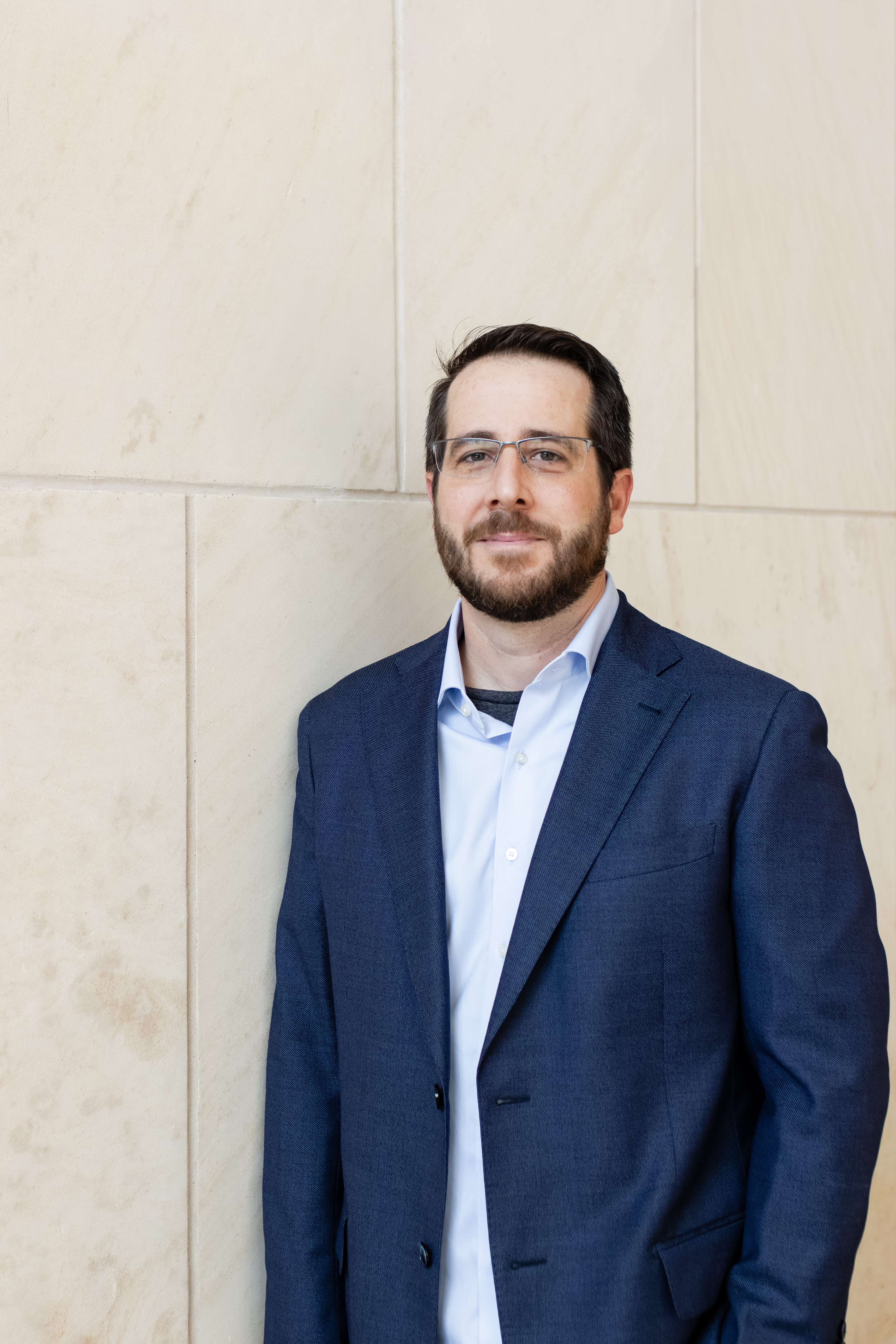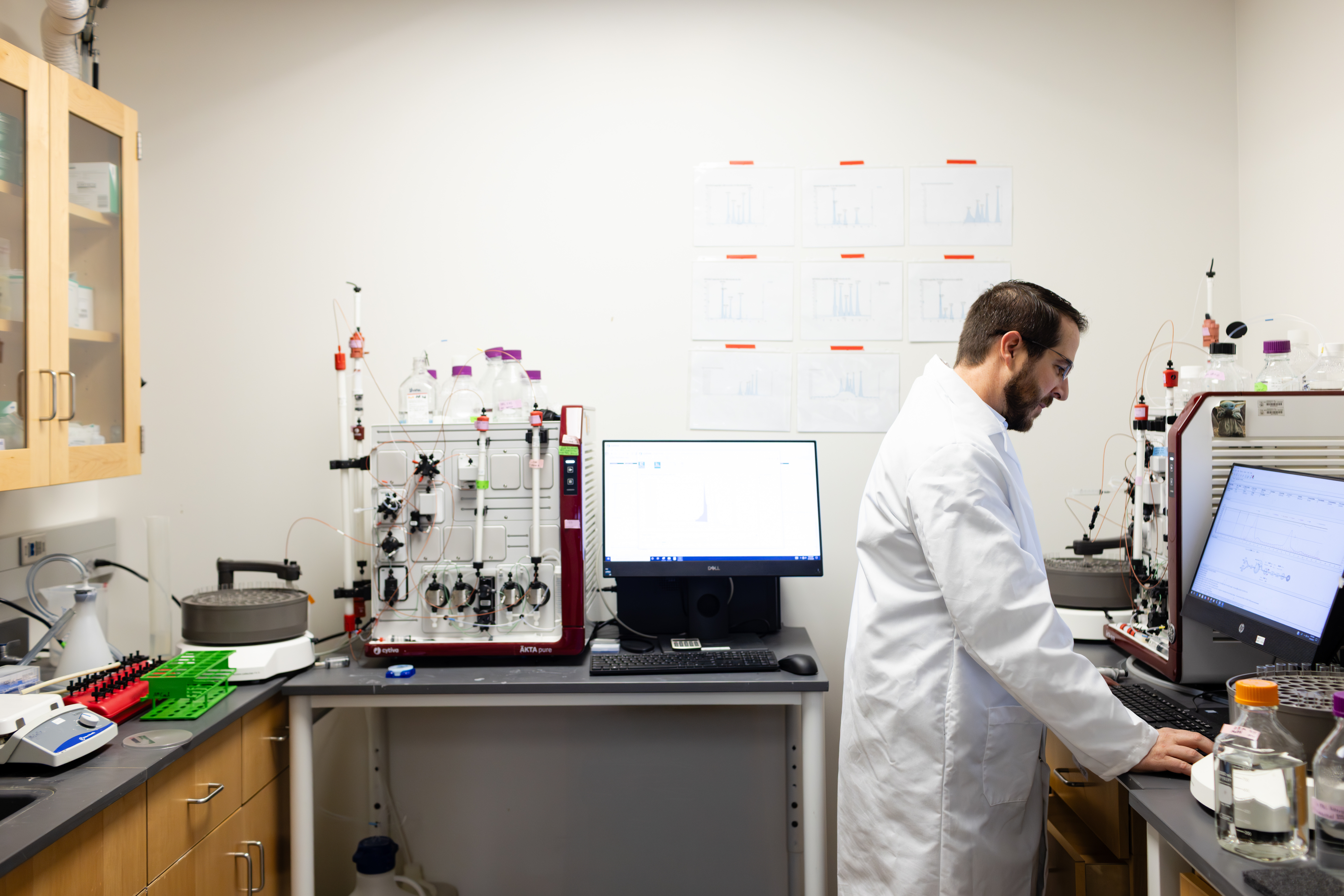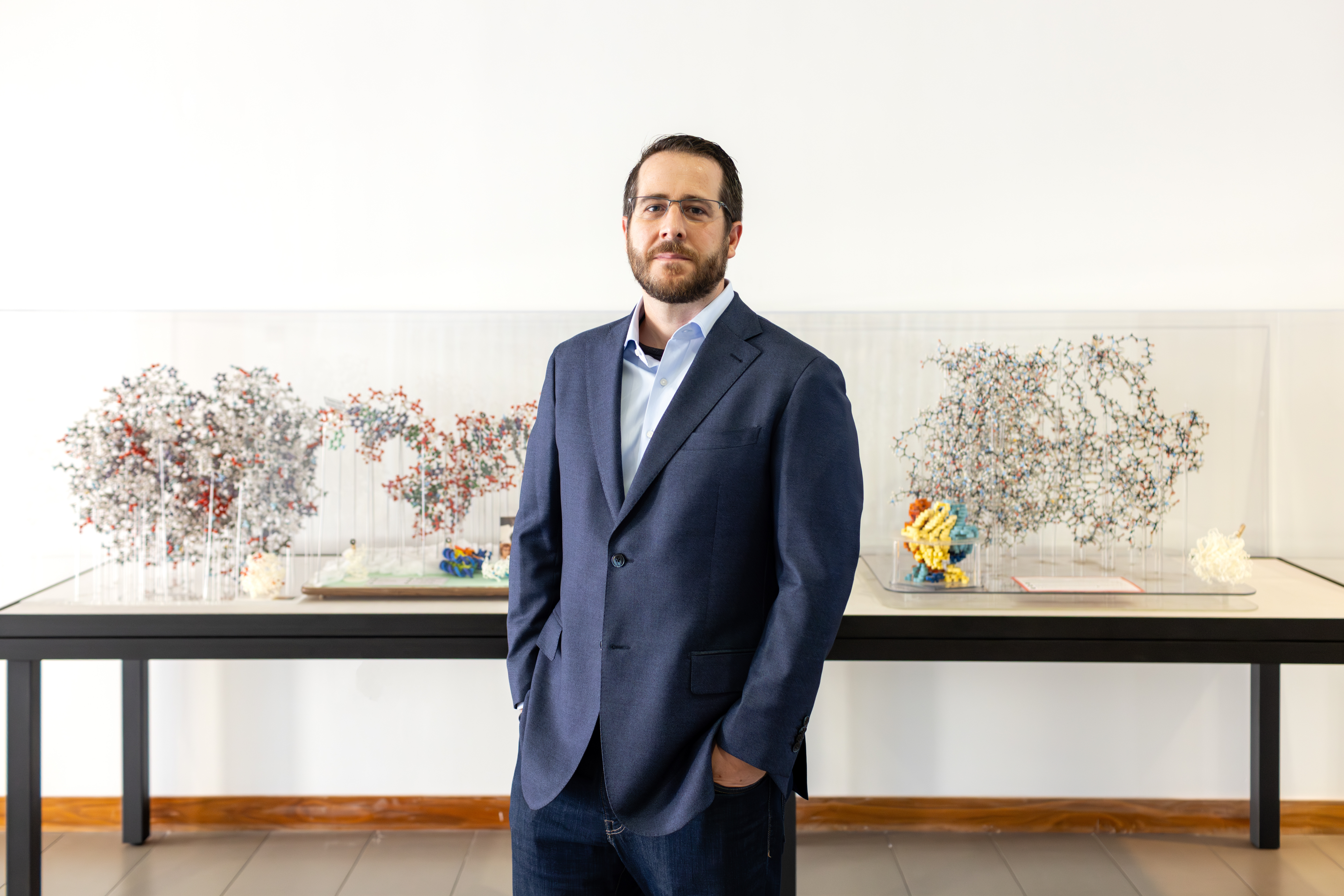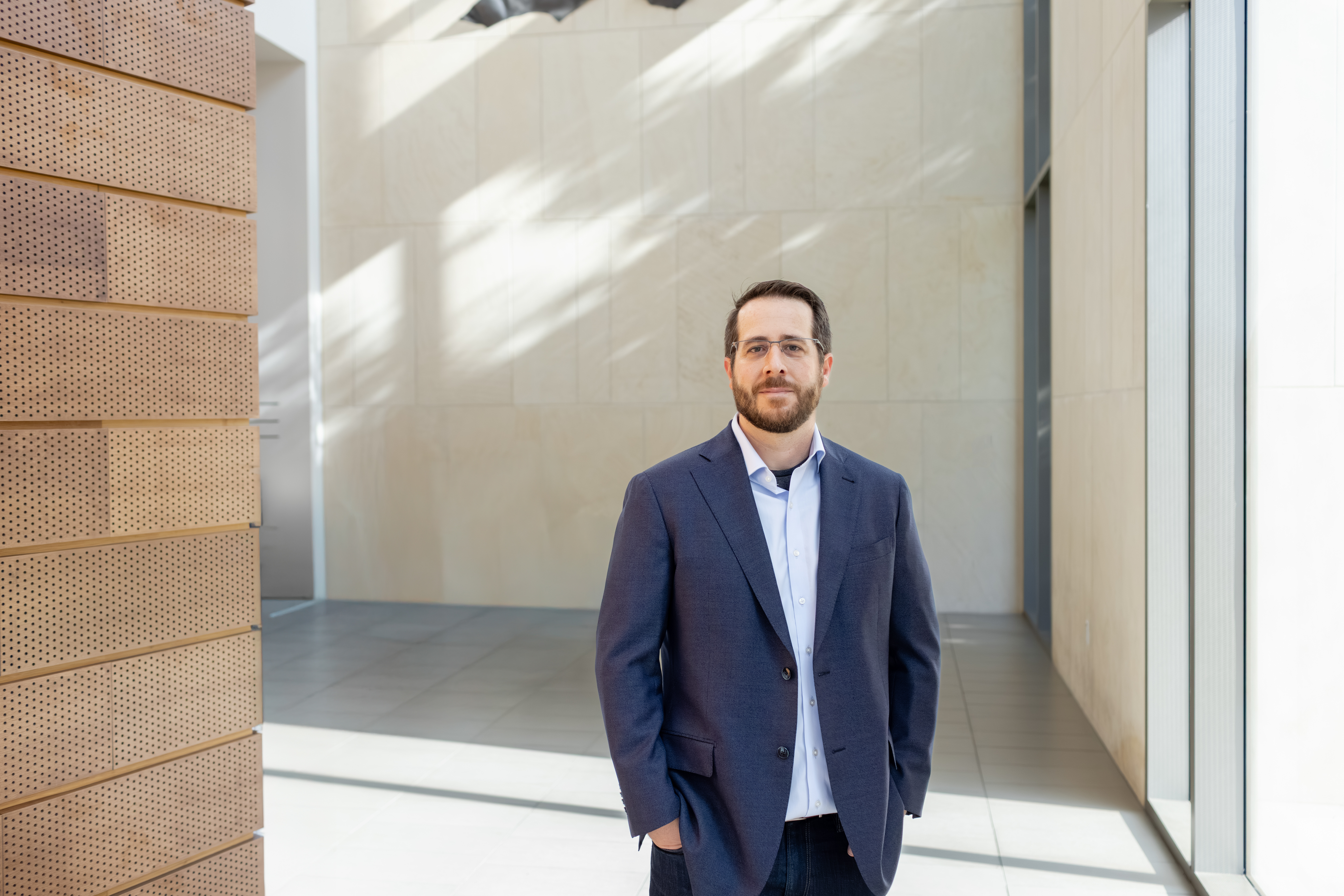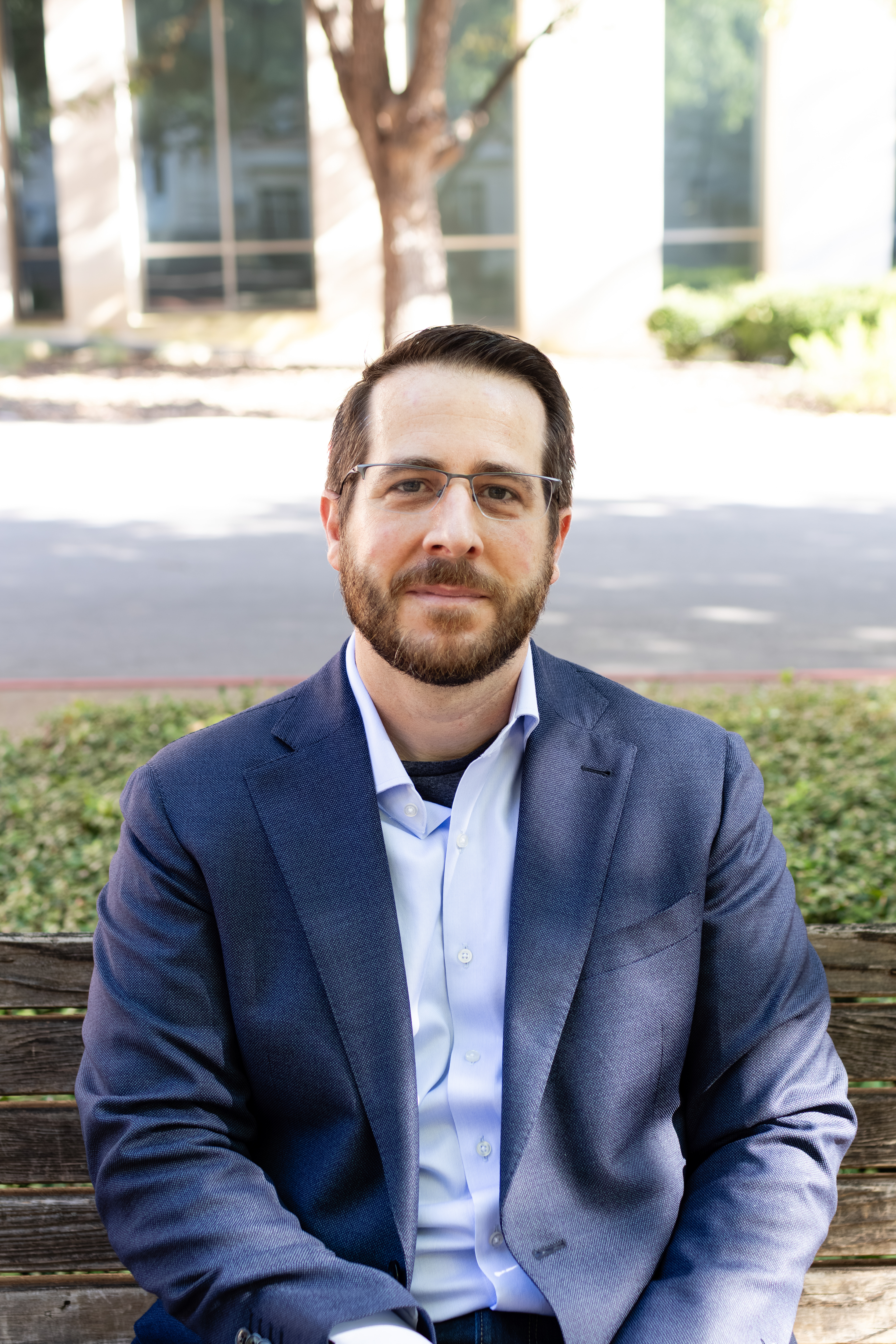About Jason's Work
Jason McLellan is a structural biologist investigating virus fusion proteins and developing new interventions to prevent infectious diseases. McLellan’s engineered viral proteins are critical to catalyzing vaccine design, particularly for infectious respiratory diseases.
Viruses infect their hosts by using proteins on their surface that fuse to and invade a host’s cells. These fusion proteins are desirable targets for vaccines since disabling them could prevent infection. However, the structure of fusion proteins is highly variable over time, making them difficult to isolate and target. In early work, McLellan used X-ray crystallography to describe, for the first time, the atomic-level structures (or conformations) of the respiratory syncytial virus (RSV) fusion protein. RSV can cause severe infections in infants and older adults, but a vaccine has been elusive for more than 50 years. McLellan determined that one of the specific pre-fusion conformations he mapped is strongly antigenic—that is, elicits a strong antibody response in the human immune system. In addition, he discovered that incorporating amino acid changes into specific sites of the protein’s structure locks it into this antigenic configuration and prevents structural variability. McLellan’s engineered protein became the basis for the first successful RSV vaccine. He continued to advance these structure-based approaches to vaccine design in research on coronaviruses that cause the common cold and Middle East Respiratory Syndrome (MERS). McLellan demonstrated that two proline residues, a type of amino acid, can stabilize the structure of pre-fusion coronavirus spike proteins. This work enabled McLellan to act quickly when the SARS-CoV-2 virus, which causes COVID-19, emerged in early 2020. His lab engineered a stabilized, antigenic version of the SARS-CoV-2 spike protein just weeks after release of the virus’s genetic sequence. Their stabilized protein sequence is used in all COVID-19 vaccines approved for use in the United States. The vaccines trigger our immune system to generate antibodies against the stabilized spike protein, training it to recognize and inactivate the virus in the future.
Currently, McLellan’s team is focused on developing a universal vaccine that would be effective against all coronaviruses. They have identified the stem of the viral spike protein as a possible antigen and characterized several antibodies that react across the family of coronaviruses. He is also investigating the surface proteins of emerging viruses and the potential to apply structure-based vaccine design to bacterial pathogens. McLellan’s insights into protein structure, function, and engineering are critical to protecting human health from the continual emergence of new infectious diseases.







